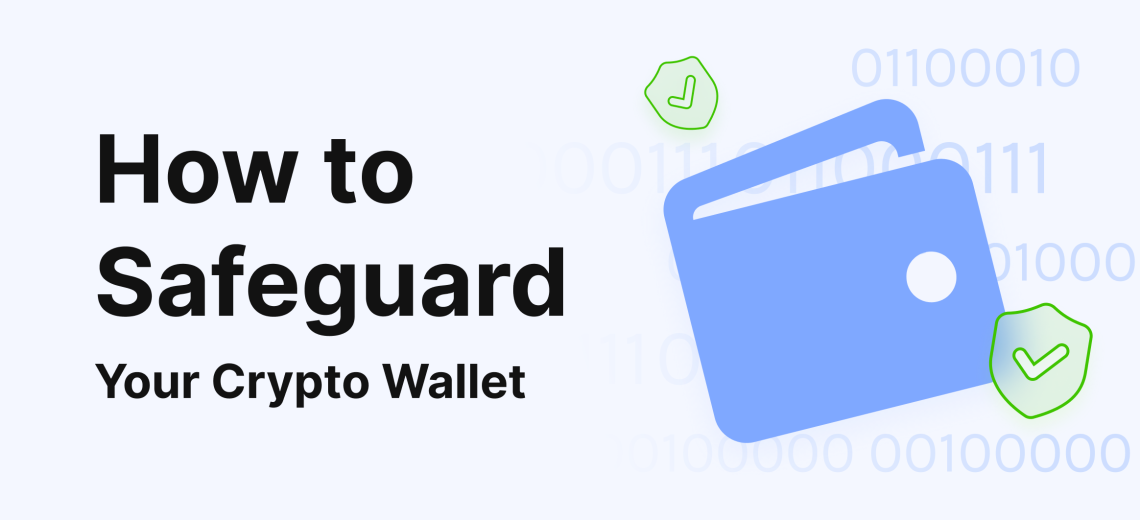Cryptocurrency. It’s the future of finance, right? Or at least, that’s what everyone’s saying. But with great digital power comes great digital responsibility. Protecting your crypto wallet isn’t just a good idea; it’s absolutely essential in 2025. We’re talking about real money here, and hackers are getting smarter every single day. So, how do you keep your hard-earned digital assets safe from prying eyes and sticky fingers? Let’s dive in and explore the best strategies for securing your crypto wallet in the ever-evolving landscape of 2025.
Understanding Cryptocurrency Wallet Security
Before we get into the nitty-gritty, let’s make sure we’re all on the same page. What exactly is cryptocurrency wallet security? It’s more than just picking a strong password (though that’s definitely important!). It’s about implementing a multi-layered approach to protect your private keys and prevent unauthorized access to your digital funds.
Why is Cryptocurrency Wallet Security So Important?
Think of your crypto wallet like your physical wallet, but potentially holding a lot more value. If someone steals your physical wallet, they might get a few dollars and some credit cards. But if someone gains access to your crypto wallet, they could drain your entire account in a matter of minutes. That’s why robust security measures are non-negotiable.
Consider these potential threats:
- Phishing attacks: Deceptive emails or websites designed to trick you into revealing your private keys.
- Malware: Viruses and other malicious software that can steal your sensitive information.
- Hacking: Direct attacks on cryptocurrency exchanges or individual wallets.
- Physical theft: Losing your device or having it stolen.
Are you starting to see why this is so crucial?
Choosing the Right Type of Cryptocurrency Wallet for Security
Did you know there are different types of crypto wallets? And that some are inherently more secure than others? Choosing the right wallet is the first step in securing your cryptocurrency.
Hot Wallets vs. Cold Wallets: Which is More Secure?
This is a fundamental distinction. Hot wallets are connected to the internet, making them convenient for everyday transactions but also more vulnerable to online attacks. Cold wallets, on the other hand, are offline, providing a much higher level of security.
- Hot Wallets: Software wallets (desktop, mobile, browser extensions) and exchange wallets. Easy to use, but less secure.
- Cold Wallets: Hardware wallets (physical devices that store your private keys offline) and paper wallets (printed versions of your private keys). More secure, but less convenient for frequent transactions.
For long-term storage of significant amounts of cryptocurrency, a cold wallet is generally recommended. Think of it as putting your savings in a safe deposit box instead of leaving cash on your kitchen counter.
Implementing Strong Cryptocurrency Wallet Security Practices
Okay, you’ve chosen your wallet. Now what? It’s time to put some security practices into action. These are the everyday habits that will significantly reduce your risk of becoming a victim of crypto theft.
Two-Factor Authentication (2FA): Your First Line of Defense
Enable 2FA on every account that supports it, especially your cryptocurrency exchange accounts and any hot wallets you use. 2FA adds an extra layer of security by requiring a second verification code (usually sent to your phone) in addition to your password.
Strong Passwords and Password Management
This should be a no-brainer, but it’s worth repeating: use strong, unique passwords for all your accounts. A password manager can help you generate and store complex passwords securely.
Keep Your Software Up-to-Date
Software updates often include security patches that address vulnerabilities. Make sure your operating system, antivirus software, and crypto wallet software are always up-to-date.
Be Wary of Phishing Scams
We mentioned this earlier, but it’s so important that it bears repeating. Be extremely cautious of any emails, messages, or websites that ask for your private keys or other sensitive information. Never click on links from unknown sources.
Backup Your Wallet
Losing your device or having it damaged could mean losing access to your cryptocurrency. Regularly back up your wallet to a secure location, such as an encrypted external hard drive or a cloud storage service with strong security measures.
Advanced Cryptocurrency Wallet Security Techniques
Ready to take your crypto security to the next level? These advanced techniques can provide even greater protection for your digital assets.
Multi-Signature Wallets
Multi-signature wallets require multiple private keys to authorize a transaction. This means that even if one key is compromised, the attacker won’t be able to access your funds without the other keys.
Hardware Wallet Security Best Practices
If you’re using a hardware wallet, make sure to store your recovery seed phrase (the backup phrase that allows you to restore your wallet) in a safe and secure location. Never store it digitally, and consider splitting it into multiple parts and storing them in different locations.
Regular Security Audits
Consider conducting regular security audits of your crypto setup to identify potential vulnerabilities. This could involve reviewing your security practices, testing your defenses, and staying up-to-date on the latest security threats.
FAQ: Cryptocurrency Wallet Security
What is a private key?
Your private key is like the password to your crypto wallet. It allows you to access and control your funds. Never share your private key with anyone.
What is a seed phrase?
A seed phrase (also known as a recovery phrase) is a set of words that can be used to restore your crypto wallet if you lose access to it. Store your seed phrase in a safe and secure location.
What should I do if I think my wallet has been compromised?
Immediately transfer your funds to a new, secure wallet. Report the incident to the cryptocurrency exchange or wallet provider, and consider contacting law enforcement.
Protecting your cryptocurrency wallet in 2025 requires a proactive and multi-faceted approach. It’s not a one-time task, but an ongoing process of staying informed, implementing best practices, and adapting to the ever-evolving threat landscape. By taking the necessary precautions, you can significantly reduce your risk of becoming a victim of crypto theft and ensure the safety of your digital assets. Remember, your crypto is only as safe as you make it. Don’t let complacency be your downfall. Stay vigilant, stay informed, and stay secure.






